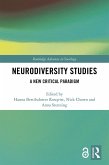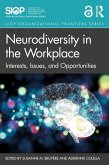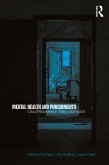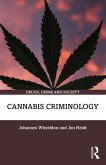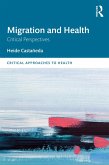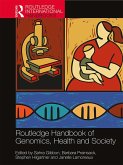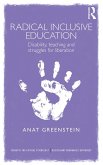Dieser Download kann aus rechtlichen Gründen nur mit Rechnungsadresse in A, B, BG, CY, CZ, D, DK, EW, E, FIN, F, GR, HR, H, IRL, I, LT, L, LR, M, NL, PL, P, R, S, SLO, SK ausgeliefert werden.
Peter Beresford, Professor of Citizen Participation at the University of Essex, UK, and Co-Chair of Shaping Our Lives, the national user led organisation.
"The increasing recognition that there is no 'normal' brain type against which all others must be judged pathological is having a transformative effect on every aspect of society: on employment, education, research, public policy, and how we conceive of the minds of other people. This book makes an important contribution to the evolving scholarly discourse around neurodiversity by centering the voices and experiences of neurodivergent people."
Steve Silberman, author of the prize-winning "NeuroTribes: The Legacy of Autism and the Future of Neurodiversity".
"There is SO MUCH here. The essays by Alyssa Hillary and Matthew Belmonte alone are worth the cost of the book. Neurodiversity advances, less like an army than like an ecosystem after a fire. Growth and renewal beyond measure."
Ralph James Savarese, Professor of English, Grinnell College and author of "See It Feelingly: Classic Novels, Autistic Readers, and the Schooling of a No-Good English Professor".
"Neurodiversity Studies: A New Critical Paradigm is interesting, enjoyable and thought provoking, and I think its theoretical discourse and positions have clear constructive practical implications which really matter."
Dinah Murray, autism researcher and campaigner productiveirritant.org.
"Neurodiversity Studies: A New Critical Paradigm provides a deep-dive into the complex world of autism and the neurologically different. Ranging through the humanities, social sciences, philosophy, ethics, and communication studies, among other areas, the book breaks new ground in the academic study of the inner worlds and sensoria of a significant portion of the population too often ignored politically while over-treated medically."
Lennard J. Davis, Distinguished Professor of English at the University of Illinois at Chicago, School of Arts and Sciences, and also Professor of Disability and Human Development in the School of Applied Health Sciences and Professor of Medical Education in the University of Illinois College of Medicine, USA.
"This superb collection builds upon previous efforts of scholars and activists to decentre normative assumptions of what it is to be human and create an interdisciplinary discursive space, formulating neurodiversity studies as a new field of enquiry ... highly recommended would be an understatement!"
Dr Damian Milton, Lecturer in Intellectual and Developmental Disabilities, University of Kent, National Autistic Society as Autism Knowledge and Expertise Consultant and chair of the Participatory Autism Research Collective (PARC).



